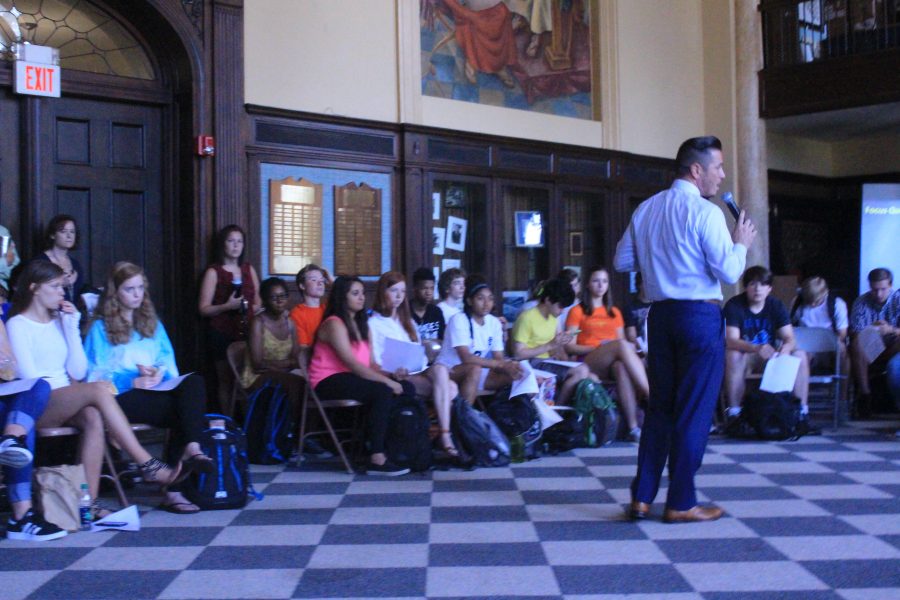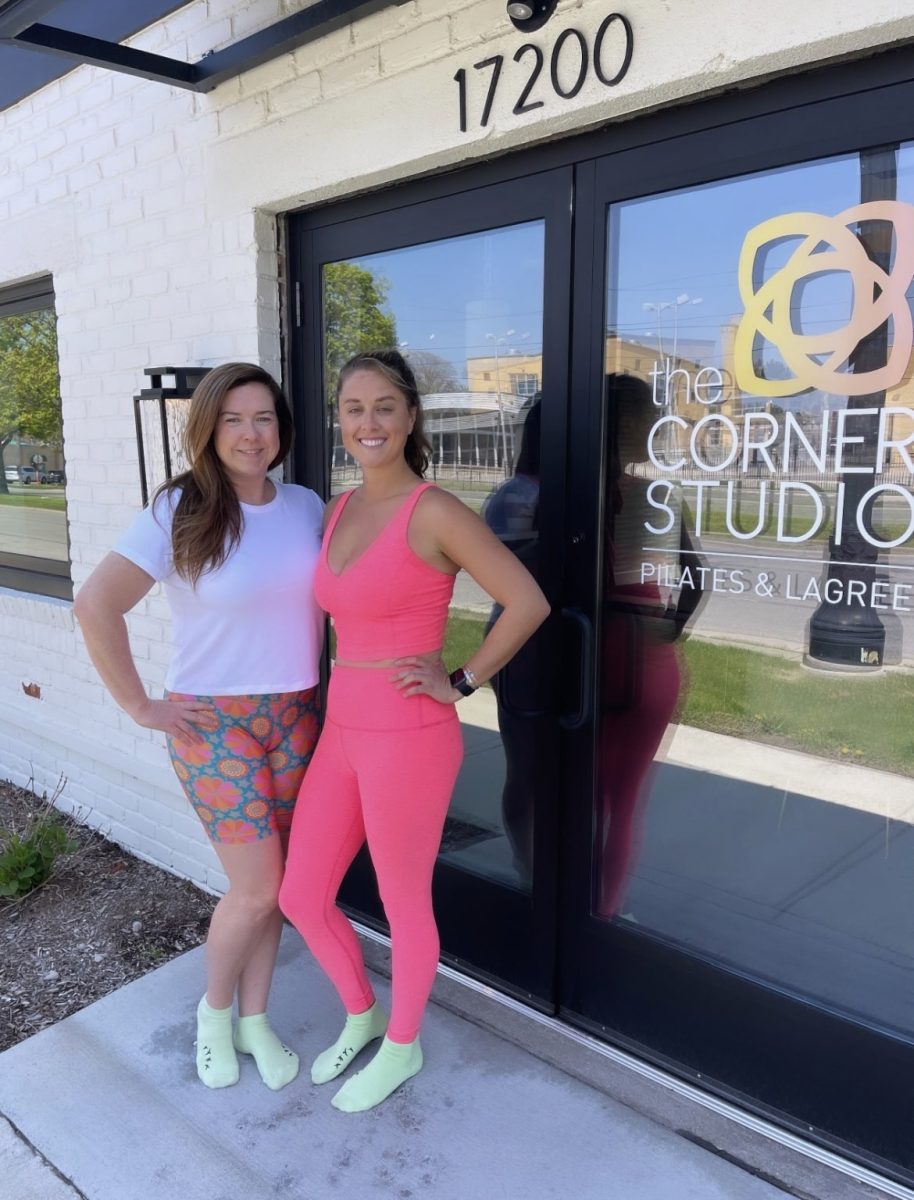By Zoe Jackson ’16 | Page Editor
Three South students filmed and shared a racist video on Monday, May 30.
Administrators were made aware of this incident on Tuesday, May 31, Principal Moussa Hamka said.
“Nearly a dozen or so students came up to me saying, ‘Mr. Hamka, there’s a video. We’ve been looking for you all day,’” he said.
Hamka said he was hurt and disgusted by the content of the video.
“It was very emotional to know that such hateful language was used and directed toward people of color, and that I had staff members and students who were deeply hurt by this,” Hamka said.
In the video, one boy can be seen relaxing on a sofa with sunglasses on, as he calls African-Americans “stupid,” and “worthless,” and says “they need go back to Africa.”
If that doesn’t work out, he then said they can become “slaves.”
When asked by another student in the video what he is going to do in 2040, one of the first elections a current sophomore would be able to run in, he laughs. “Segregate,” he says, before going on to list the states in which black people will be allowed to live in.
“How are they going to be treated?” a voice asks.
“Awfully,” he responds. “They’re going to be owned by white people. White people are going to be the dominants of the country.”
“We’re going to burn them on stakes,” another voice chimes in.
“You’re going to stab them so you know who the owner is. You can sell those b——. You can trade them.”
“We’re not gonna put them in coffins. We’re gonna put them in the river. Amen, n——.”
The South community was very disappointed by the horrific contents of the video according to Hamka, who added that watching the video deeply moved him.
“I was embarrassed to say that I work at Grosse Pointe South High School,” Hamka said.
The three South students were all separated from school, Hamka said. Generally, a separation is different from a suspension in that it does not have to be reported on a college application. Hamka, however, said he couldn’t comment on the specifics of these students’ punishments.
“Different people in the video had a different level of responsibility, but everyone there had an obligation and a responsibility to stop it,” Hamka said. “All of them contributed to what took place. From the person who was actually taking the video, the person answering the questions, as well as someone else who could be heard in the background provoking more insightful comments to be made.”
Hamaka said the main speaker in the video bears the most responsibility, and that the degree to which the discipline was instituted depended on the person’s level of responsibility in this situation.
For many students, the most bothersome part of the whole situation is the message it sends to those outside the school about students at South.
“I’m actually not really shocked,” Phelan Johnson ‘18 said. “I feel like the school just keeps going downhill and progress just keeps winding itself backwards.”
The video was horrible and disgusting, Johnson said.
“The whole time I was thinking like, I’ve been a part of Mosaic Youth Theatre of Detroit for the past two years, and I was the only white person there. And basically 90 percent of my friends are African-American, and I can’t imagine the stuff that he was saying happening to them,” Johnson said. “If they’re going to treat them like that, then you damn well better treat me like that too, because that’s just awful.”
All of the racially charged incidents of late have made Connor Mallegg ‘16 realize that The United States hasn’t come that far as a country.
“Sure, we’ve passed legislation and made some great strides, but in reality, racism still runs rampant, especially around one of the most pronounced racial divides in the country: the Grosse Pointe-Detroit border,” Mallegg said.
Students expressed their outrage towards this incident not only to Hamka, but on social media and to each other, calling for a school-wide assembly.
“I definitely think that we need to have a school-wide discussion, one that spans an hour or two with the whole school because (students) shouldn’t have a choice. They should be made uncomfortable in order to learn,” Johnson said.
However, it was not possible for South to schedule a mandatory assembly.
“We just couldn’t pull it off,” Hamka said.
Administration heard about and addressed this issue on Wednesday, and to turn around and hold a school-wide assembly on Thursday just wasn’t feasible, Hamka said.
“(This week) was finals week, the last day for review before seniors take their exams. Secondly, we don’t have the capacity at Grosse Pointe South to house all of our students at once,” Hamka said. “Our auditorium has a capacity of a little over 400 hundred students. So we would need to chunk this up, do it by classes, and it would disrupt the whole day, not just one hour.”
However, the incident was addressed. On Thursday, June 2, Hamka and other administrators hosted two forums regarding the incident as well as diversity and inclusion, allowing students to tell others how the comments in the video made them feel.
“I think students had an opportunity to express their voice and their concerns. And they need to know that we are listening, and that we are working on it,” Hamka said.
A lot of people made some great points in the discussion, Johnson said.
“However, I feel like we were not giving our full opinions. A lot of people were just trying to be polite about it, and I understand that this is a school setting, and I understand that you can’t get up there on your soap box and just yell about whatever you want, and that there’s a limited amount of time,” she said. “However, some people were like, ‘Oh, you know, he had freedom of speech.’ I did not agree with that at all. I thought that was really disgusting.”
Hosting the forum was the most immediate thing that could be done to to address the situation, Hamka said.
“We know that we need to engage in whole-school dialogue. And we are looking at forums for the fall that would be mandatory for all students,” Hamka said.
These forums are important to meaningful change, according to Johnson. Without it, he said, the individuals who need a discussion like this the most will not receive it.
“I feel like the people who came to the forum, they were not the people who needed to hear most of what was said,” Johnson said.
Unfortunately, long-term, meaningful change does not happen overnight, Hamka said.
“It occurs from sustained dialogue and education over time. Our efforts since March, we’ve done the best we can do – it’s not enough. It’s merely the start. It’s not sufficient enough to address this issue,” he said. “It’s just the start.”
Hamka said South also needs to partner with the community to foster the change we wish to see.
“It can’t just be us,” Hamka siad. “We need our parents. We need our business partners. We need everyone in the community to rally in unity. It can’t just be the schools. This is a community, and a community in its primary definition is a partnership of all the stakeholders.”
Johnson said she hopes South can fix its racial issues.
”I hope it gets better,” Johnson said. “I don’t want anymore incidents to happen. Maybe this is just a bad year for South. But I know we need to change how we teach, especially teachers, and I think the community overall just needs to take a look at itself.”












































































